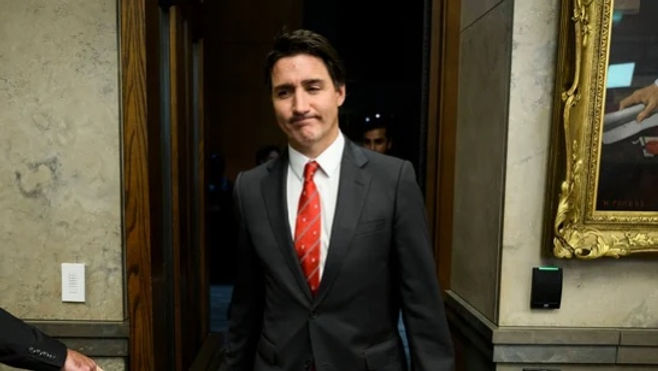India Expels Canadian Diplomat in Retaliation After Canada's Action Over Khalistani Leader's Murder
- Author

- Sep 19, 2023
- 2 min read
New Delhi: In a retaliatory move that has further heightened diplomatic tensions between India and Canada, the Indian government has expelled a senior Canadian diplomat stationed in India. This decision comes in response to Canada's expulsion of an Indian diplomat earlier, alleging the diplomat's credible link to the murder of the prominent Khalistani leader Hardeep Singh Nijjar.
The Indian Ministry of External Affairs summoned the High Commissioner of Canada to India and conveyed its decision to expel a Canadian diplomat stationed in India. The expelled diplomat has been instructed to leave India within the next five days, marking a significant escalation in the diplomatic row.
The expelled diplomat has been reportedly identified as Olivier Sylvester, who served as the chief of the Canadian intelligence agency in India.
Earlier, Canadian Prime Minister Justin Trudeau raised his ‘deep concerns' on the matter while speaking in the legislature. Claiming that he raised those concerns with Prime Minister Narendra Modi ‘personally and directly’, Trudeau said the killing of a Canadian citizen on the country's soil is an ‘unacceptable violation of our sovereignty’.

Pro-Khalistan Movement History in Canada and Recent Developments
The history of the pro-Khalistan movement in Canada dates back nearly 45 years. Immigration of Sikhs into Canada began in the early 20th century, with many attracted by the fertile land in British Columbia. However, the sentiment regarding a Sikh homeland gained traction in the 1970s. India's Pokhran nuclear tests in 1974, which repurposed Canadian-provided CANDU type reactors for military use, further strained India-Canada relations. Simultaneously, the Khalistan movement in Punjab was gaining prominence.
With generational ties to Canada, many Sikhs sought refugee status there, citing political persecution. This led to an influx of Khalistanis into Canada. Among them was Talwinder Singh Parmar, considered the mastermind behind the terrorist bombing of Air India Flight 182, known as the Kanishka bombing. Parmar was based in Burnaby, British Columbia, and headed the Babbar Khalsa International.
Controversy Surrounding Hardeep Singh Nijjar's Murder and Diplomatic Fallout
The recent killing of pro-Khalistan leader Hardeep Singh Nijjar added fuel to the fire. Nijjar, designated as a terrorist, was killed in June of this year in British Columbia. He was the chief of the pro-Khalistan outfit Khalistan Tiger Force (KTF) and was wanted in four NIA cases related to Sikh radicalism. Nijjar was shot dead at Guru Nanak Sikh Gurudwara, a place he allegedly occupied forcibly and where he served as president.
While separatist elements have blamed India for Nijjar's murder, Canadian law enforcement agencies did not mention New Delhi when briefing a close confidant of the Khalistani figure about the potential threat to his life.
The expulsion of the Canadian diplomat and the controversy surrounding Nijjar's murder have placed significant strain on the India-Canada relationship. The Indian government's firm denial of any involvement in the killing, coupled with its call for action against anti-India elements in Canada, has further escalated tensions between the two nations.




Comments